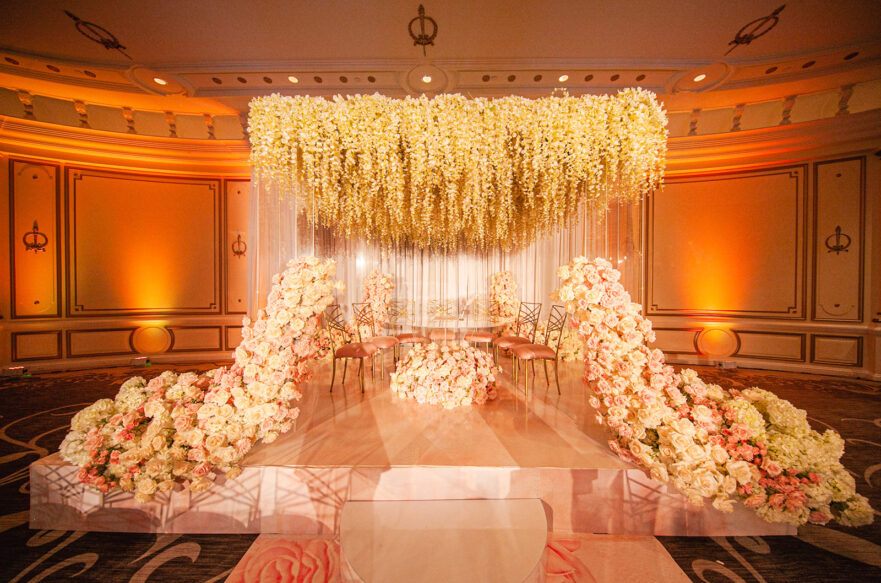The Nikkah ceremony, also known as a “Nikkah” (in Islamic tradition), is the formal and legal contract of marriage between two people in accordance with Islamic law. Here is a step-by-step guide to a traditional Nikkah ceremony:
- Prior to the ceremony, the groom formally proposes marriage to the bride. In Islam, this is called “Ijab” (the offer of marriage). The bride’s acceptance is known as “Qubul.”
- These two parties usually declare their acceptance in front of witnesses, including family members.
- The groom must offer the bride a Mahr, a gift or dowry agreed upon by both families. This can be money, jewelry, or another valuable item, and is agreed before the ceremony.
- Assign witnesses, at least two male witnesses, or four female witnesses, should be present to legally validate the Nikkah. They must be trustworthy and Muslim.
- An Imam or a religious leader usually officiates the ceremony. In some cases, a local community leader or family elder may do this.
- The Ijab (Proposal): The ceremony starts with the groom or the Imam asking for the consent of the bride’s guardian (often the father). The Imam will ask, “Do you agree to give your daughter to [Groom’s Name] in marriage?”
- The bride’s guardian responds on her behalf, confirming the proposal.
- The Qubul (Acceptance): The groom responds with his formal acceptance of the bride, stating “Qubul” or “I accept” three times.
- The marriage contract, known as “Aqd Nikkah,” is signed by the bride, groom, and two witnesses. This document formalizes the marriage under Islamic law.
- The Mahr is also mentioned in the contract, ensuring the groom’s financial responsibility toward the bride.
- The Imam may recite verses from the Qur’an, offer prayers for the couple’s future happiness, and invoke blessings on their marriage.
- Once everything is complete, the Imam declares the couple to be married according to Islamic law.
- The Walima is the reception or banquet that follows the Nikkah to celebrate the new marriage. It is hosted by the groom’s family, though this is not a mandatory part of the ceremony but a significant cultural tradition.
The Nikkah ceremony marks the official union of the bride and groom in Islamic law. It’s a spiritual and legal contract with deep cultural and religious significance, focusing on mutual respect, commitment, and love between the couple.
